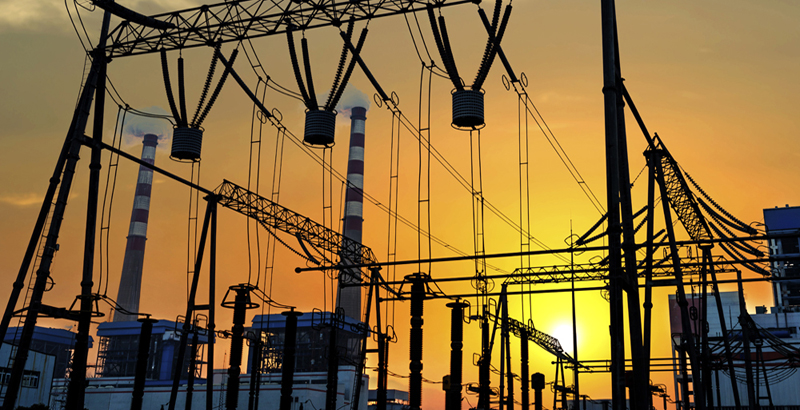Heat and Power Engineering - Study tracks - Master of Science (MSc) in Innovative Sustainable Energy Engineering - 2-years, Nordic Five Tech
Innovative Sustainable Energy Engineering
Innovative Sustainable Energy Engineering
Hovedbilde - heat and power - msisee
 Picture: thinkstock.com
Picture: thinkstock.comImportant information
Important information
NTNU has had its last admission into this programme in the fall of 2021. You can still apply to the programme through Alto University. Please note that NTNU is no longer a part of this collaboration for any new admissions.
Heat and Power Engineering
MS ISEE Study Track: Heat and Power Engineering,
Course Table:
- Year Aalto University: School of Engineering, Dept. of Mechanical Engineering, Mika Järvinen
- Year Chalmers University of Technology: Dept. of Space, Earth and Environment, Carl Johan Linderholm & Tobias Mattison
Study track focus and goal:
This track meets the challenges set by global warming and depletion of fossil fuel resources by providing world class education in advanced technologies and systems for efficient, clean and competitive conversion, distribution and use of electricity, heating and cooling.
Training is provided in the use of optimization and modelling tools for design and planning on the technical plant level, including state-of-the-art technologies, at the same time that necessary knowledge on energy systems is given in order to gain perspective. After completion, the student will be well poised for a career within a large number of sectors in industry which utilizes energy, as well as academia. The enormous transformations needed in the energy system in the future, will make such knowledge indespensible and highly valuable.
Learning outcomes:
- Students become skilled in analysis, optimization and design of combined heat and power plants and industrial heat processes, acquiring also state-of-the-art knowledge on technologies for fuel conversion with reduced or zero CO2 emissions (biomass and waste conversion, Carbon Capture and Storage technologies).
- By acquiring complementary knowledge on an energy systems level, students are trained to approach problem-solving in an interdisciplinary way.
- Students are prepared for a professional career within the energy industry and power generation companies.
Course Table
Course Table
- AAE-E3051 Future energy carriers (5 ECTS)
- EEN-E3006 Energy markets (5 ECTS)
- EEN-E1030 Thermodynamics in Energy Technology (5 ECTS)
- EEN-E3007 Process Integration and Energy Optimization (5 ECTS), II
Elective course list 1:
- AAE-E1000 Introduction to Advanced Energy Solutions (5 ECTS)
- AAE-E3000 Advanced Energy Projects (5 ECTS) (I-II)
- PHYS-E6572 Advanced Wind Power Technology (5 ECTS) (alternate years)
- PHYS-C6370 Fundamentals of New Energy Sources (5 ECTS)
- AAE-E3085 Circular Economy for Energy Storage, P (5 ECTS) (I)
Totally 25 ECTS
- AAE-E2003 Thermo-chemical energy Conversion (5 ECTS) III-IV
- AAE-E3090 Renewable Energy Engineering, (5 ECTS) (III-IV)
- EN-E3005 Exercises in Energy Technology (5 ECTS)
- 31E01310 Energy and Environmental Economics (5 ECTS)
- EEN-E3004 District heating and cooling (5 ECTS)
Elective cours list 2:
- PHYS-E6570 Solar Energy Engineering (5 ECTS) (alternate years)
- EEN-E2001 Computational Fluid Dynamics (5 ECTS)
- PHYS-C1380 Multi-disciplinary energy perspectives (5 ECTS)
Totally 35 ECTS
- MEN120 Heat and Power Systems Engineering (7.5 ECTS)
-
KVM013 Industrial Energy Systems (7.5 ECT)
Elective course list 3:
- ENM125 Sustainable Electric Power Systems (7.5 ECTS)
- TEK465 Sustainable Transportation (7.5 ECTS)
- TME210 Turbomachinery (7.5 ECTS)
- FFR170 Sustainable Energy Futures (7.5 ECTS)
- MTF072 Computational fluid dynamics (CFD) (7.5 ECTS)
- TME160 Multiphase flow (7.5 ECTS)
- MTF171 Gas turbine technology (7.5 ECTS)
- ENM095 Sustainable power production and transportation (7.5 ECTS)
Totally 30 ECTS
Thesis , 30 ECTS
Totally 30 ECTS
First and main supervisor at Chalmers University, 2nd year
|
Professors at Chalmers |
Research area |
|
Prof. Tobias Mattisson, Chalmers University, Dept. of Space, Earth and Environment |
Chemical looping, gasification, thermodynamics |
|
Prof. Filip Johnsson, Chalmers University, Dept. of Space, Earth and Environment |
Fluidized bed processes |
|
David Pallarès, Chalmers University, Dept. of Space, Earth and Environment |
Fluidized bed processes |
|
Fredrik Norrmann, Dept. of Space, Earth and Environment |
Oxyfuel combustion, flue gas treatment |
|
Magnus Rydén, Dept. of Space, Earth and Environment |
Chemical looping combustion, |
Co-supervisors for master thesis supervision at Aalto University (i.e. 1st year university)
|
Professors at Aalto |
Research area |
|
prof. Mika Järvinen, Aalto University, department of Mechanical Engineering |
Combustion and gasification, fuel spraying and modeling |
|
prof. Martti Larmi, Aalto University, department of Mechanical Engineering |
Biofuel production and combustion |
|
prof. Risto Lahdelma, Aalto University, department of Mechanical Engineering |
Energy: Modeling, simulation and optimization |
|
Prof. Sanna Syri, Aalto University, department of Mechanical Engineering |
Energy Market, economic and societal impacts of energy technologies |
|
Prof. Ville Vuorinen, Aalto University, dpt. of Mechanical Engineering |
Computational Fluid Dynamics, Combustion, Mathematical Modelling |
| Prof. Annukka Santasalo-Aarnio, Aalto University, department of Mechanical Engineering | Energy storage, circular economy |
Degree requirements for admission process
A BSc degree corresponding to a minimum of 180 ECTS credits in the following fields: Mechanical Engineering, Chemical Engineering, Chemistry and Physics.
Applicants must document that they have fulfilled the following minimum requirements: The applicant’s qualifications must include a strong working knowledge of mathematics and energy/thermal engineering. Applicants must document that they have fulfilled the following minimum requirements:
- Mathematics: 21.5 ECTS including linear algebra, calculus and differential equations
- Thermodynamics: 6 ECTS
- Mass and/or heat transfer: 6 ECTS
- Fluid mechanics: min. 5 ECTS
Study plan
Master Thesis Information
Master Thesis Information
- Doing Master thesis at Chalmers University
- For more information or questions, please contact Carl Johan Linderholm
